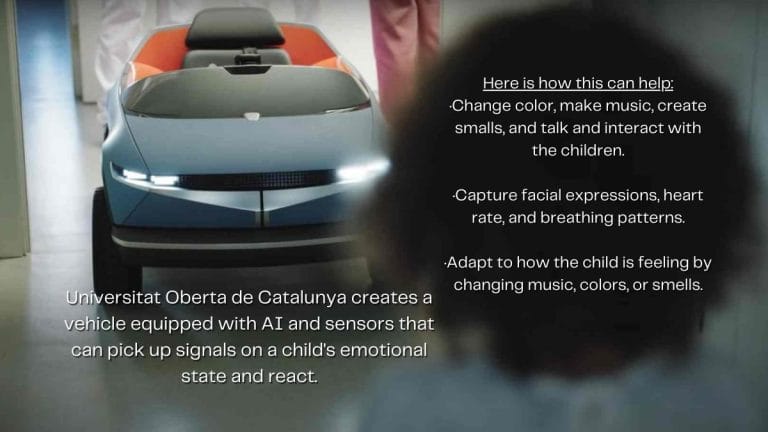We all know robots have long been used in many industries to create efficiencies in production. Now, we are seeing robots come to the rescue to reduce children’s stress before surgery, which could help aid six out of every 10 young patients who must undergo surgery suffering from stress before they receive anesthesia.
Consider the example of an affective computing and social robot from a project at the UOC (Universitat Oberta de Catalunya). The small vehicle is equipped with AI (artificial intelligence) and sensors that can pick up signals about the child’s emotional state and react accordingly.
Here is how this can help:
- Change color, make music, create smalls, and talk and interact with the children.
- Capture facial expressions, heart rate, and breathing patterns.
- Adapt to how the child is feeling by changing music, colors, or smells.
The prototype was manufactured by the Hyundai car company in South Korea, and sent to Sant Joan de Déu Barcelona Children’s Hospital, where it was tested with 86 children between 3 and 9 years old who had to undergo a procedure between December 2020 and May 2023.
Ultimately, this research will provide information about the potential and challenges involved in integrating affective technologies in pediatric hospital environments. The next step is to manufacture a new prototype, applying all the conclusions drawn from the pilot to conduct a clinical trial. However, the project is currently on hold due to a lack of funding.


